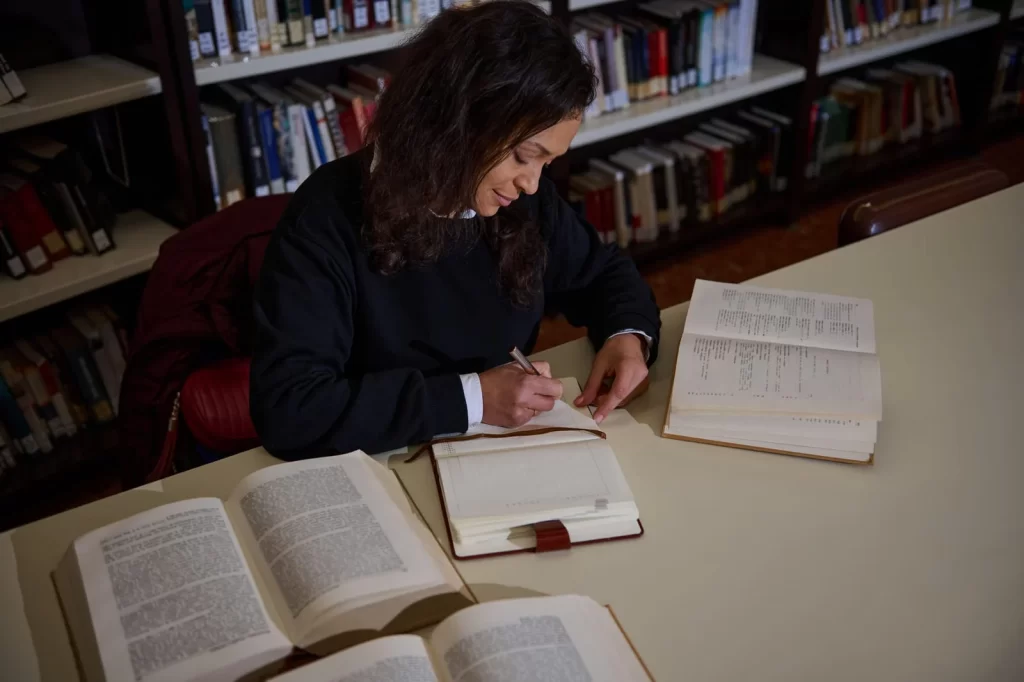Abu Dhabi’s educational system stands at the forefront of academic innovation in the Middle East, consistently working to develop students who can compete globally while maintaining strong cultural roots. The pursuit of academic excellence has become a cornerstone of the emirate’s educational vision, reflecting its commitment to building a knowledge-based economy and preparing students for future success.
Understanding how to foster academic excellence in Abu Dhabi’s diverse classrooms requires recognizing the unique cultural, linguistic, and socioeconomic factors that shape the learning environment. Schools across the emirate serve students from numerous nationalities and backgrounds, creating both opportunities and challenges for educators seeking to maximize student potential.
What Is Academic Excellence in Modern Education?
The academic excellence definition extends far beyond high test scores or perfect grades. True excellence encompasses a holistic approach to learning that includes intellectual curiosity, critical thinking skills, effective communication abilities, and the capacity for lifelong learning. In Abu Dhabi’s context, this definition also includes cultural awareness and global citizenship skills.
Academic excellence manifests differently across students, taking into account individual learning styles, cultural backgrounds, and personal strengths. Some students demonstrate excellence through analytical problem-solving, while others excel in creative expression or collaborative leadership. Recognizing these varied expressions of academic achievement helps educators create more inclusive and effective learning environments.
The Multifaceted Nature of Student Achievement
Student academic excellence involves both cognitive and non-cognitive factors that contribute to learning success. Cognitive elements include subject matter mastery, analytical thinking, and knowledge application skills. Non-cognitive factors encompass motivation, persistence, social skills, and emotional regulation abilities that support sustained academic performance.
Research consistently shows that excellent academic performance results from the interaction between these various factors rather than any single element. Abu Dhabi’s most successful schools recognize this complexity and design comprehensive approaches that address all aspects of student development.

Key Components of Academic Excellence in the Classroom
High Standards and Clear Expectations
Establishing high standards forms the foundation of any effort toward achieving academic excellence. Students generally rise to meet expectations when those expectations are clearly communicated, consistently maintained, and appropriately challenging. In Abu Dhabi’s classrooms, this means setting ambitious but achievable goals that stretch students’ capabilities while providing the support needed for success.
Clear expectations must be specific, measurable, and aligned with learning objectives. Teachers should articulate what excellent work looks like in their subject areas and provide students with exemplars and rubrics that illustrate quality standards. This clarity helps students understand how to direct their efforts and self-assess their progress toward it.
Quality of Instruction
The quality of classroom instruction directly impacts student learning outcomes and academic achievement. Effective teachers in Abu Dhabi’s schools combine subject matter expertise with pedagogical skills, cultural sensitivity, and understanding of individual student needs. They use research-based instructional methods while adapting their approaches to meet diverse learning requirements.
Quality instruction includes careful lesson planning, varied teaching strategies, appropriate pacing, and regular assessment of student understanding. Teachers who consistently deliver high-quality instruction create conditions where it becomes more achievable for all students, regardless of their starting points or backgrounds.
Student Motivation and Engagement
Motivation serves as the driving force behind sustained academic effort and achievement. Students who are intrinsically motivated to learn demonstrate greater persistence, deeper engagement, and better long-term retention of knowledge and skills. Abu Dhabi educators can foster this motivation by connecting learning to students’ interests, goals, and cultural experiences.
Engagement strategies that promote academic excellence include collaborative learning opportunities, real-world problem-solving activities, and choices in learning topics or methods. When students feel personally invested in their learning, they are more likely to put forth the effort required for excellent academic performance.
Strategies for Achieving Academic Excellence in Abu Dhabi's Classrooms
Fostering a Positive and Supportive Learning Environment
Creating classroom environments that support academic excellence requires attention to both physical and emotional factors. The physical space should be organized, well-resourced, and conducive to various learning activities. More importantly, the emotional climate should feel safe, inclusive, and encouraging of academic risk-taking and growth.
Teachers can build supportive environments by establishing clear behavioral expectations, celebrating diverse perspectives, and creating opportunities for peer collaboration and support. When students feel valued and supported, they are more willing to engage in challenging academic work and persist through difficulties.
Elements of Supportive Learning Environments:
- Respectful communication between teachers and students
- Clear classroom procedures and routines
- Recognition of diverse cultural backgrounds and learning styles
- Opportunities for student voice and choice in learning
- Regular celebration of academic progress and achievement

Incorporating Active Learning Methods
Active learning strategies engage students directly in the learning process rather than having them passively receive information. These methods have been shown to improve academic outcomes across all subjects and grade levels. In Abu Dhabi’s classrooms, active learning can include discussions, problem-solving activities, hands-on experiments, and collaborative projects.
The key to successful active learning lies in careful planning and clear structure. Teachers must design activities that align with learning objectives while providing appropriate support for students who may be unfamiliar with these approaches. Regular practice with active learning methods helps students develop the skills needed for excellent academic performance.
Regular and Constructive Feedback
Feedback plays a crucial role in student learning and academic improvement. Effective feedback is specific, timely, and focused on helping students understand how to improve their work. In pursuing academic excellence, feedback should highlight both strengths and areas for growth while providing concrete suggestions for improvement.
Abu Dhabi teachers can enhance their feedback practices by using various methods, including written comments, verbal conferences, peer review, and self-assessment opportunities. The goal is to create an ongoing dialogue about learning that helps students continuously refine their understanding and skills.
Technology-Enhanced Learning for Academic Excellence
Integrating Technology into the Classroom
Technology integration in Abu Dhabi’s classrooms offers powerful tools for enhancing academic achievement when used strategically. Digital tools can provide personalized learning experiences, access to global resources, and opportunities for creative expression that support academic excellence. However, technology should supplement rather than replace effective teaching practices.
Successful technology integration focuses on how digital tools can enhance learning objectives rather than using technology for its own sake. This might include using educational software for skill practice, online collaboration tools for group projects, or multimedia creation tools for student presentations and demonstrations.
Promoting Digital Literacy
Digital literacy skills have become essential components of it in the modern world. Students need to know how to research effectively online, evaluate digital sources, create multimedia presentations, and collaborate using digital platforms. These skills support academic achievement across all subject areas.
Key Digital Literacy Skills:
- Information evaluation and source credibility assessment
- Digital research and database navigation
- Multimedia creation and presentation skills
- Online collaboration and communication
- Digital citizenship and ethical technology use

Creating a Culture of Academic Excellence in Abu Dhabi Schools
Collaboration Between Teachers, Students, and Parents
Achieving academic excellence requires coordinated efforts from all stakeholders in the educational community. Teachers, students, and parents each play important roles in creating conditions that support high academic achievement. Effective collaboration involves regular communication, shared expectations, and mutual support for student learning goals.
Parent engagement strategies might include regular progress updates, home learning support resources, and opportunities for parents to participate in school activities. When families understand and support academic goals, students are more likely to achieve excellent academic performance both in school and at home.
School Leadership and Vision
School leaders set the tone for it through their vision, policies, and resource allocation decisions. Principals and administrators who prioritize academic achievement create systems and structures that support teacher effectiveness and student success. This includes providing professional development opportunities, ensuring adequate resources, and maintaining high expectations for all students.
Leadership Strategies for Promoting:
- Clear communication of academic vision and goals
- Regular monitoring of student progress and achievement data
- Support for teacher professional development and collaboration
- Recognition and celebration of academic achievements
- Allocation of resources to support effective instruction
Effective school leadership also involves creating cultures where continuous improvement is valued and where both teachers and students feel supported in taking academic risks and learning from mistakes. This culture of growth and excellence permeates all aspects of school life and contributes to sustained academic achievement.
Building Community Partnerships
Abu Dhabi schools can enhance their academic programs by building partnerships with local businesses, cultural institutions, and higher education institutions. These partnerships provide students with real-world learning opportunities, career exploration experiences, and access to expertise and resources beyond what schools can provide independently.
Community partnerships also help connect classroom learning to broader life and career goals, increasing student motivation and engagement. When students see the relevance of their academic work to future opportunities, they are more likely to invest the effort required for academic excellence.
Sustaining Academic Excellence in Abu Dhabi's Educational Future
The pursuit of academic excellence in Abu Dhabi’s classrooms requires ongoing commitment, continuous improvement, and adaptation to changing educational needs and opportunities. Schools that consistently achieve high levels of academic performance share common characteristics: clear vision, high expectations, quality instruction, supportive environments, and strong community partnerships.
Implementing these strategies for fostering academic excellence requires patience, persistence, and collaboration among all stakeholders. The goal is not just to achieve short-term improvements in test scores, but to develop students who are prepared for lifelong learning and success in an increasingly complex and interconnected world.


